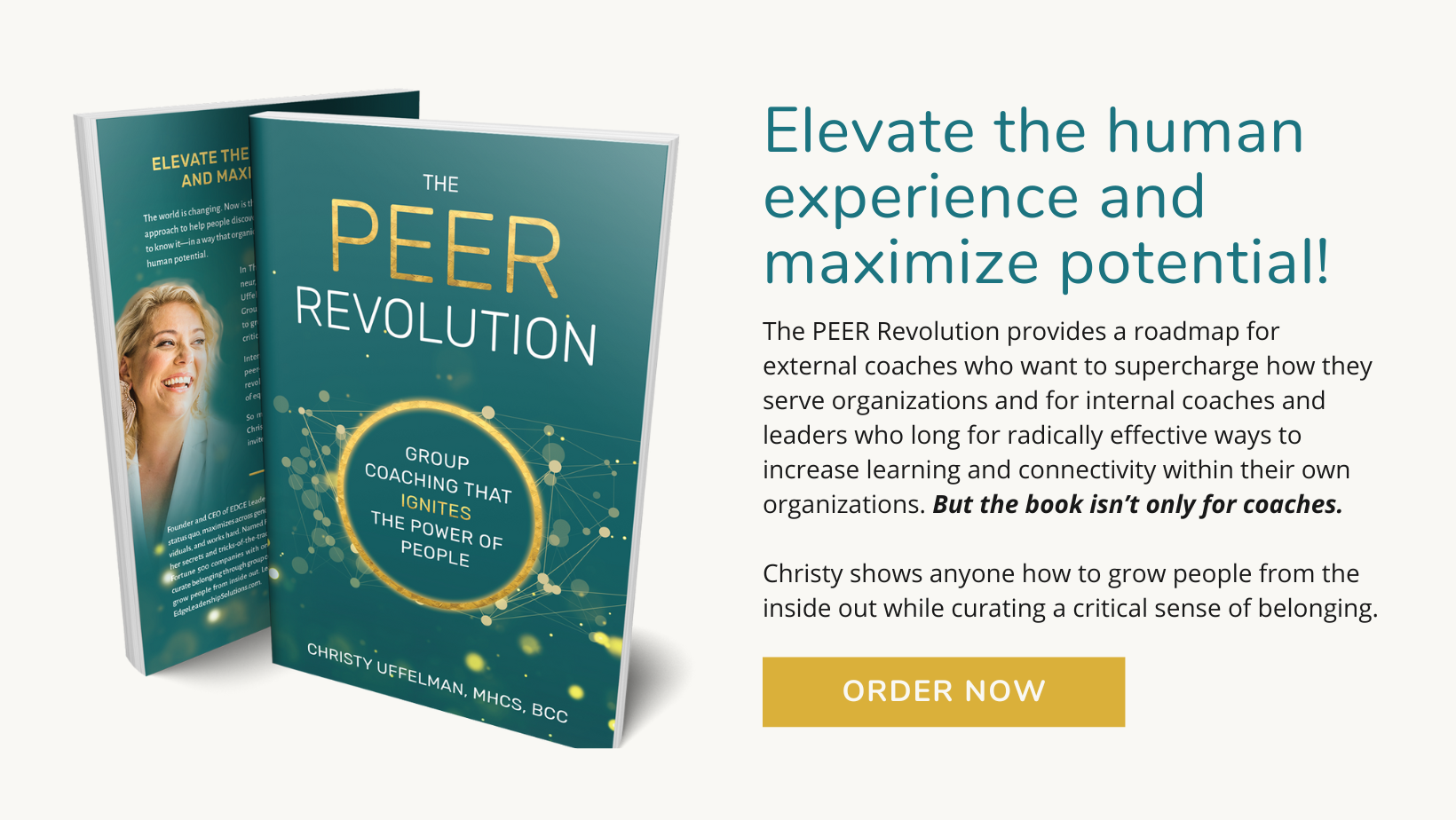The Next Generation of Group Coaching is Here
There is no question that the landscape of the workplace is changing at a rapid pace. We now have a growing number of Millennials who are in leadership positions and have grown up in collaborative school and social environments. Millennials often don’t expect or enjoy working alone. They want to collaborate and work with others.
The truth is there is a tangible shift in workplace expectations in modern business culture. Instead of talking at me, Millennials want to be engaged, to co-create the agenda with a focus on what’s relevant for each person in this exact moment of time as it relates to where they want to take their career and their life. Millennials don’t want competition; they want community. But the modern workplace isn’t only made up of Millennials.
In fact, there’s a disparity in the workplace today. On one side, a large population is preparing for retirement. On the other side, a larger population is just getting started in their careers.
While the Boomer generation peaked at sixty-seven million people, their numbers are declining daily in our workforce. In contrast, at around eighty million, the Millennial generation is the largest generation our country has ever seen. And behind them, Gen Z is coming in fast and furious at about seventy-two million and Gen X with fifty-three million.
Because of this experience imbalance, companies have to pipeline younger leaders before they are ready—promote them before they have the experience or know-how under their belt to successfully hold leadership positions.
Group Coaching Our New Level Leaders
Gone are the days of formal mentoring programs with executives who just need to check a box or ineffective PowerPoint-driven training classes. Now is the time for innovative development frameworks that use unique, collaborative learning styles to teach what people need to know when they need to know it, and in a way that maximizes and magnifies human potential in an organic, intentional way.
There’s no denying that great things happen when people work cooperatively across the generations and gender spectrum. That is the powerful shift that group coaching brings when done well. Each person is on a personal development journey, but everyone is going through a collective journey together.
Along the way, each person has something valuable to offer, something meaningful and impactful to contribute to illuminating the world as a whole. The glow from one flame may burn bright, but the glow that comes from the collective flames of many is expansive and compounding. And, most importantly, in a room full of light, we no longer feel alone.
In a similar way, developmental cohorts within the PEER Technology ®Group Coaching Framework help elevate the human experience, maximize human potential, and raise the level of success through collaborative thinking. It’s no longer about individual achievement and success but lifting each other up, walking through the experience together, shoulder to shoulder, back to back. As human beings, we crave this type of genuine connection and belonging.
As we look to the future of leadership coaching and development, a shift needs to take place to work in conjunction with the old model. It’s about working together towards a supportive and collective leadership goal. Hiring an “executive coach” to work 1:1 with leaders in and of itself is no longer enough.
The PEER Technology® Group Coaching Framework
When it comes to the PEER Technology® Group Coaching Framework, featured in my book PEER Revolution, equity and inclusion are the names of the game. Long gone are the days when companies seek uniformity in their talent and practices. In fact, most companies are now expected to equitably create an inclusive culture—an authentic space that curates belonging. Whether focusing on a specific group or a general group that includes diverse people, the spotlight is not on one person but on the people, the whole.
If you are an internal coach within an organization, these experiences will help you magnify your impact on your CHRO and have greater influence in building a sustainable pipeline of talent to the top. For you and other operations stakeholders, group coaching will have the additional benefit of saving the organization money by not needing to bring in external professional coaches and creating an organic space for mentoring and sponsorship to take root—all while horizontal knowledge transfer fuels your talent pipeline.
A healthy pipeline has never been more important for HR professionals and coaches pivoting in response to crises like a global pandemic, confronting related workforce challenges, and learning to leverage virtual technologies to sustain a culture with a dispersed employee base.
Perhaps you are a corporate leader trying to devise a growth path for people in your organization. You may be a leader in HR or talent management who has done a good bit of professional coaching yourself, and now the company is looking to you to help coach other team members to success. You already know how hard it is to increase employee retention and drive engagement.
You have to be concerned about employee mobility, how to promote people with confidence, and how to fully develop and engage coworkers. You may have executives who want to contribute but don’t know how. They’re stuck in old-school “mentoring programs” that feel like Match.com gone wrong and leave them feeling drained and inauthentic. The good news: you can use the PEER Framework to elevate and expand human potential no matter how busy your leaders are.
Another critical piece of good news: this PEER Framework is perfectly suited for virtual environments to bring people together across diverse life experiences, viewpoints, and geography. More than ever, as many leaders lead remote teams, we have to be able to connect people in ways never possible before.
But now you can do just that. In my book, PEER Revolution, I read more about group coaching and the PEER Technology ® Group Coaching Framework.
